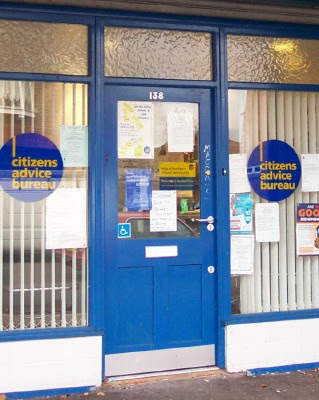 |
| "Justice" minister Ken Clarke plans to price poor people out of legal recourse via his commodification of justice reforms. |
The Legal Aid budget is there to provide legal representation to people that are financially incapable of paying for their own legal representation. Legal Aid lawyers earn far less than they could in virtually any other legal specialisation (such as libel, tax law, contracts, conveyancing and intellectual property). Behind all of the disingenuous waffle about "saving money" and "preventing spurious legal claims" the Tory motivation for these measures are obvious. It is a step towards the commodification of justice in order to further tilt the scales in favour of the rich by preventing poor people from obtaining legal representation. There will be many serious legal ramifications if these Tory reforms are voted through and I am going to outline a few of them.
 |
| Under the Tory proposals it will be much harder to bring compensation cases against companies like Trafigura in the UK courts |
 |
| Tory plans to cut Citizens Advice Bureau funding are a classic example of false economy. |
According to the Commission of Inquiry into Legal Aid the proposed legal aid cuts will be a false economy because for every pound of legal aid spent on benefits advice, the state saves up to £8.80, and for every pound of legal aid spent on employment advice, the state saves up to £7.13. When coupled with the human cost to the vulnerable and socially excluded of reducing legal aid, the commission found the increased economic costs of these measures to be unacceptable.
The Legal Aid minister under the Labour government; Lord Bach, agreed that under the proposals the most vulnerable will suffer and it will lead to exactly the opposite of what the Tories claim, with more problems being brought to court in the long run. He also expressed strong opposotion the the plan to cut civil fees by 10%, which will hit social welfare lawyers who work for little reward. It is good to see the opposition voicing their concerns about these measures, however it should be noted that it was New Labour spin doctors that invented the false caricature of the "legal aid fat-cat lawyer" in order to justify their last round of legal aid cuts.
The number of people who represent themselves in the civil courts is set to rise dramatically because people who cannot afford a lawyer and fall outside the limits that are set for legal aid funding will be forced to either drop their pursuit of justice or to represent themselves in court. Several judges and legal experts such as the the Judges' Council have warned that a large increase in self representing clients will cost a lot more in the long run as many more cases that could be easily be resolved by legal experts will find their way into the courts with one or both parties representing themselves and that the increase in "litigants in person" triggered by legal aid cuts would clog up the courts, imposing greater strains and costs than the current system.
From the evidence of widespread opposition and the demonstrable false economy of the proposals it is quite clear that the Tories are pursuing these cuts as part of an ideological agenda. Rather than trying to save money and prevent spurious cases from reaching the courts as they claim, they are simply trying to commodify justice and herd the poor out of the courts in order to protect the interests of big business and the rich.

No comments:
Post a Comment